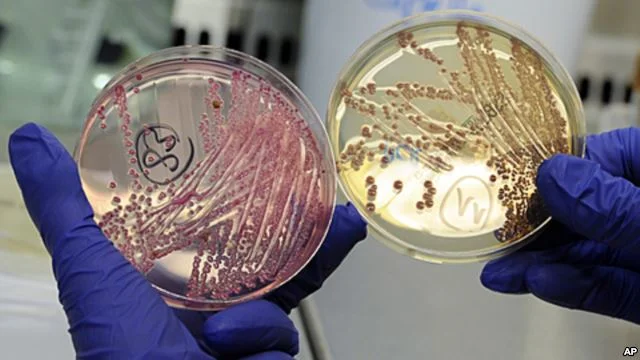Molecular approaches pervade every biological discipline, and each MEES campus boasts distinguished, energetic faculty members that emphasize molecular mechanisms of ecological interactions and dynamics. Expertise includes molecular microbial ecology and physiology; bioremediation; molecular endocrinology of fish growth, development and reproduction; environmental stressors contributing to fish physiological dysfunction and oncogenesis; mechanisms and stressors of nitrogen fixation; molecular models of marine surface colonization; molecular cues of organism-organism interaction; and invertebrate immunity. Faculty in this area frequently study macromolecular-environmental interactions using recombinant DNA and hybridoma approaches. The Environmental Molecular Biology and Biotechnology Area of Specialization encourages interaction between campuses and is synergistic with other AOSs.
Several campuses in the University System of Maryland have facilities specializing in Molecular Biology and Biotechnology. The Institute of Marine and Environmental Technology (IMET) houses newly built state-of-the-art facilities in the Columbus Center in Baltimore's Inner Harbor. The University of Maryland's campuses at Baltimore and Baltimore County have eminent scientists in cellular and molecular biology, many with interests in the environmental sciences. On the University's largest campus in College Park, numerous MEES faculty and laboratories work in such areas as soil and aquatic microbiology and molecular and cellular biology, ecology, immunology, and physiology.
Graduates of the Environmental Molecular Biology and Biotechnology AOS will most often be found employed in academic and research based institutions (both government and private), as well as employed by consulting firms and other private sectors.
Prerequisites:
A Bachelor's degree in the natural sciences, life sciences, or engineering, including a grade of C or better in the following courses:
1. Four semesters of Biology, including Biochemistry
2. Two semesters of Physics
3. Four semesters of Chemistry
4. Two semesters of Calculus
5. Two semesters of Molecular Biology/Molecular Genetics are recommended
Core Courses and Other Requirements (M.S. and Ph.D.):
1. One course in Molecular Biology/Genetics (600 level or above, 3-4 credits)
2. One course in Cell Biology/Physiology (600 level or above, 3-4 credits)
3. One course in Ecology (400 - 700 level, 3-4 credits)
4. One course in Advanced Chemistry /Biochemistry (400 or 600 level, 3-4 credits)
5. One elective 400 - 700 level course outside the AOS (3-4 credits)
6. One course or seminar in Environmental Management, Policy, Ethics, or Philosophy of Science (a 2-4-credit course can satisfy item 5) (400 or 600 level)
7. One 3 - 4 credit course in Statistics/Biostatistics (600 level for the Ph.D., 400 level for the M.S.)
8. One graduate level seminar (MEES 608 or equivalent) for each year in residence (on average) up to cap
9. Courses in Experimental Design and Analysis and in Scientific Writing are also recommended
*Note: For the M.S. degree, only three of the first four requirements must be fulfilled (5-8 are required for all students).
